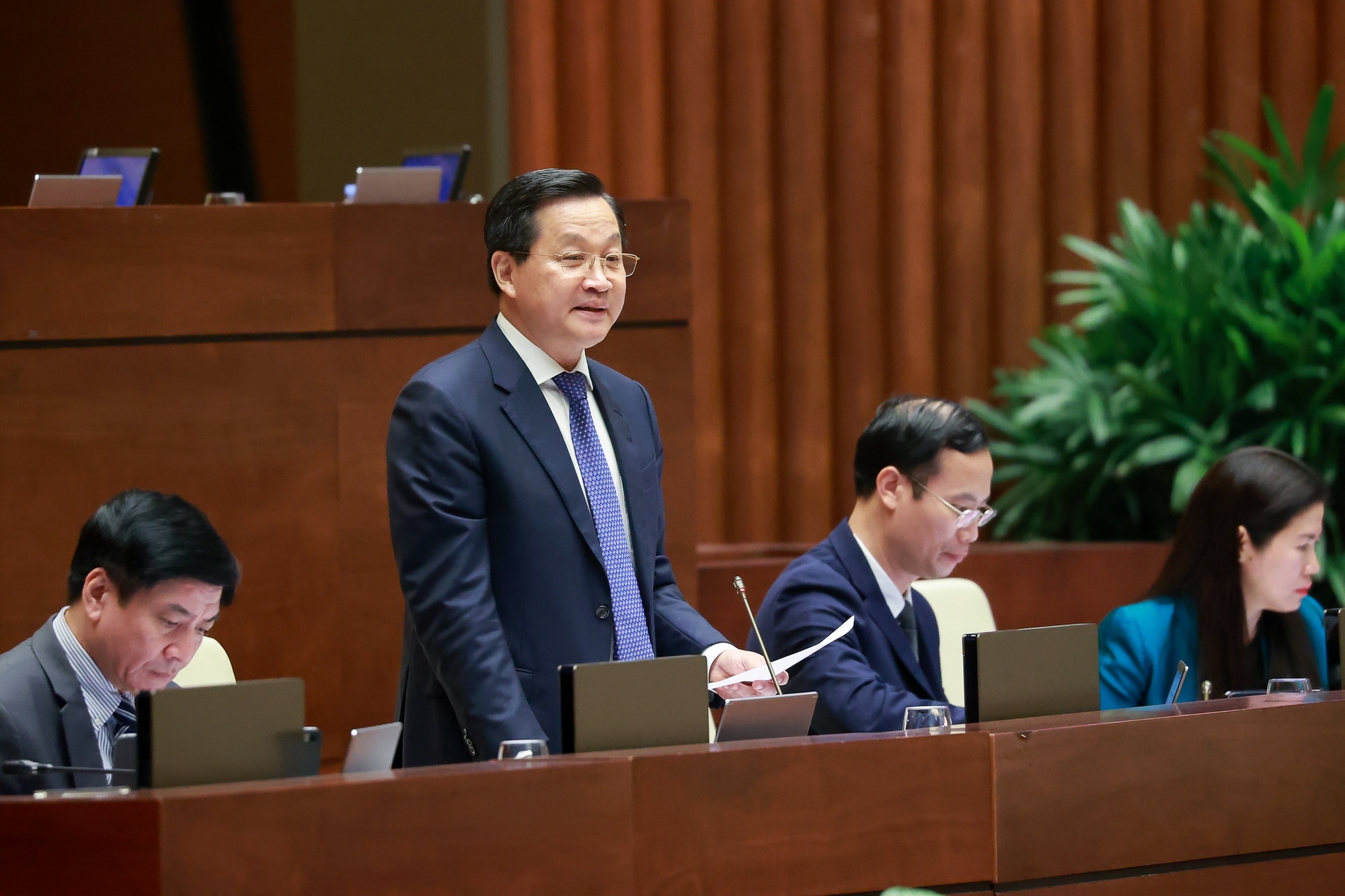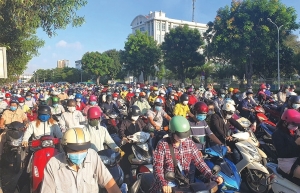Ramp-up required for nation’s recovery programme
Deputy Prime Minister Le Minh Khai last week told the National Assembly (NA) that one of the prime tasks of the government from now until the year’s end is to use all best resources to effectively carry out the nation’s 2022-2023 Programme on Socioeconomic Recovery and Development (PSRD) which is valued at $15 billion and has been implemented since early last year, but at a slow pace due to various hurdles.
 |
| Deputy Prime Minister Le Minh Khai - source: chinhphu.vn |
“We will have to drastically and effectively implement the PSRD,” DPM Khai stressed. “The disbursement of public investment and deployment has failed to meet the desired requirement, affecting the government’s efforts to support enterprises and achieve the economic growth goal.”
Figures revealed by a government report submitted to the NA showed that by late April, over $3.77 billion or 28.8 per cent of the PSRD’s total value was disbursed. The PSRD is set to officially expire by the end of this year.
Under the PSRD’s initiative on providing preferential loans via Vietnam Bank for Social Policies (VBSP), accumulatively as of April 26, this bank disbursed loans worth $737.26 million for about 332,000 customers; $207.87 million as loans for purchasing social houses; $434.8 million for employment assistance; $8.04 million for 2,600 non-state nurseries and primary schools; and $50.56 million for over 23,700 customers in ethnic minorities and mountainous areas.
By late March, VBSP disbursed loans with a preferential annual lending rate of 6 per cent valued at $58.56 million for poorer people.
When it comes to the policy on providing housing rental for factory workers, localities disbursed $163.37 million or 57.2 per cent of the policy’s value for about 5.3 million workers.
Accumulatively by late March, about $2.48 billion was disbursed for exempting and decreasing land taxes; and payment of land taxes and land rental worth $4.81 billion was extended. Additionally, the opportunity cost for assistance via policies on extending land taxes and land rental reached $321.74 million. At present, all of these types of policies have been terminated.
Regarding the PSRD’s initiative on offering a 2 per cent lending rate from the state budget for enterprises, cooperatives, and household businesses via commercial banks, accumulatively as of late March, total money provided reached only $14.2 million, tantamount to merely 0.82 per cent of this policy’s value.
Under the Ministry of Planning and Investment’s calculations, it is expected that by late this year, the disbursed sum may reach only VND2.57 trillion ($111.74 million), and the remaining VND37.43 trillion ($1.62 billion) may not be disbursed.
NA deputy Trieu Quang Huy representing the northern province of Lang Son commented, “Such a very slow disbursement rate would mean big pressures for the government, ministries, and localities from now until the year’s end. This is one of the biggest obstructions against boosting economic growth and supporting enterprises. The most important solution is to boost administrative procedures which remain cumbersome now.”
Echoing this view, many like NA deputy Mai Van Hai from the north-central province of Thanh Hoa also felt anxious about the slow-paced deployment.
“The government and localities have made big efforts to accelerate the programme, but overall disbursement has stayed at a very low level,” Hai said. “Some policies within the PSRD cannot benefit businesses much. For example, some are finding it very hard to approach the 2 per cent lending rate incentive. The key reason is the tough condition that borrowers must prove their recovery ability, which is irrational and infeasible.”
 | Nation braced for dim job prospects Vietnam is faced with high unemployment and big risks emerging in the global market, affecting the country’s economic prospects. |
What the stars mean:
★ Poor ★ ★ Promising ★★★ Good ★★★★ Very good ★★★★★ Exceptional
Related Contents
Latest News
More News
- Tet event in Japan celebrates success of 14th National Party Congress (January 25, 2026 | 10:04)
- 14th National Party Congress wraps up with success (January 25, 2026 | 09:49)
- Congratulations from VFF Central Committee's int’l partners to 14th National Party Congress (January 25, 2026 | 09:46)
- List of newly-elected members of 14th Political Bureau announced (January 23, 2026 | 16:27)
- 14th Party Central Committee unanimously elects To Lam as General Secretary (January 23, 2026 | 16:22)
- List of members of 14th Party Central Committee announced (January 23, 2026 | 09:12)
- Highlights of fourth working day of 14th National Party Congress (January 23, 2026 | 09:06)
- Press provides timely, accurate coverage of 14th National Party Congress (January 22, 2026 | 09:49)
- Press release on second working day of 14th National Party Congress (January 22, 2026 | 09:19)
- Minister sets out key directions to promote intrinsic strength of Vietnamese culture (January 22, 2026 | 09:16)

 Tag:
Tag:




















 Mobile Version
Mobile Version